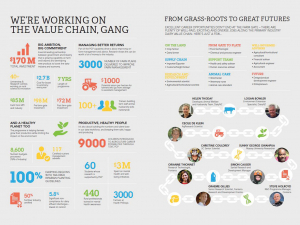For example, a woman who played rugby for the Netherlands now studies climate change in New Zealand. And an adopted Aussie who travelled the world learning physics, maths and computing and is now making money for our dairy industry.
People Power – From Gate to Plate highlights nine different people taking different routes to adding value to the industry and economy.
The magazine, published by the Transforming the Dairy Value Chain (TDVC) Primary Growth Partnership scheme, highlights the work of scientists, researchers and others in non-traditional roles at DairyNZ, Fonterra, LIC, Zespri and others.
Among them are Cecile de Klein, who captained the Netherlands women’s rugby team at the inaugural world cup in 1991 and is now an AgResearch climate scientist; and Graeme Gillies, a senior research scientist at Fonterra who after many roles and countries got his current job studying food structure innovation in Palmerston North.
There are about 60 students and researchers along the dairy value chain whose masters, PhDs and post-doctoral research is supported by the TDVC scheme.
Manager Andrew Fletcher says the work shows them how their research can result in tangible commercial outcomes that benefit other people and the economy. Many will have careers in dairy industry science and research.
“The TDVC has a high strike rate in terms of people coming out of PhD and post-doctorate studies and into Fonterra and other parts of the food industry, adding to their employability and to the national capital,” says Fletcher.
“We recognised going into this work that we might not have all the capability we might need to drive value.”
A key part of that capability campaign has been the collaboration between MPI, through its PGP scheme, and industry.
“Without the TDVC we would not have been able to attack this at anywhere near the sort of scale needed,” says Fletcher. “We have been able to bring in a whole lot of additional PhD students and post-docs to work on these projects and build up broad teams and capability.
“They are part of a process of change towards a multi-disciplinary fusion in food science – scientists who can work well with engineers and others.”









